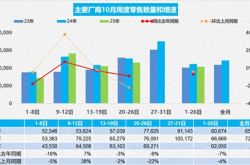"Hidden Tactics" in Didi's Financial Report: Squeezing Domestic Drivers to Offset Overseas Losses?
![]() 06/11 2024
06/11 2024
![]() 511
511
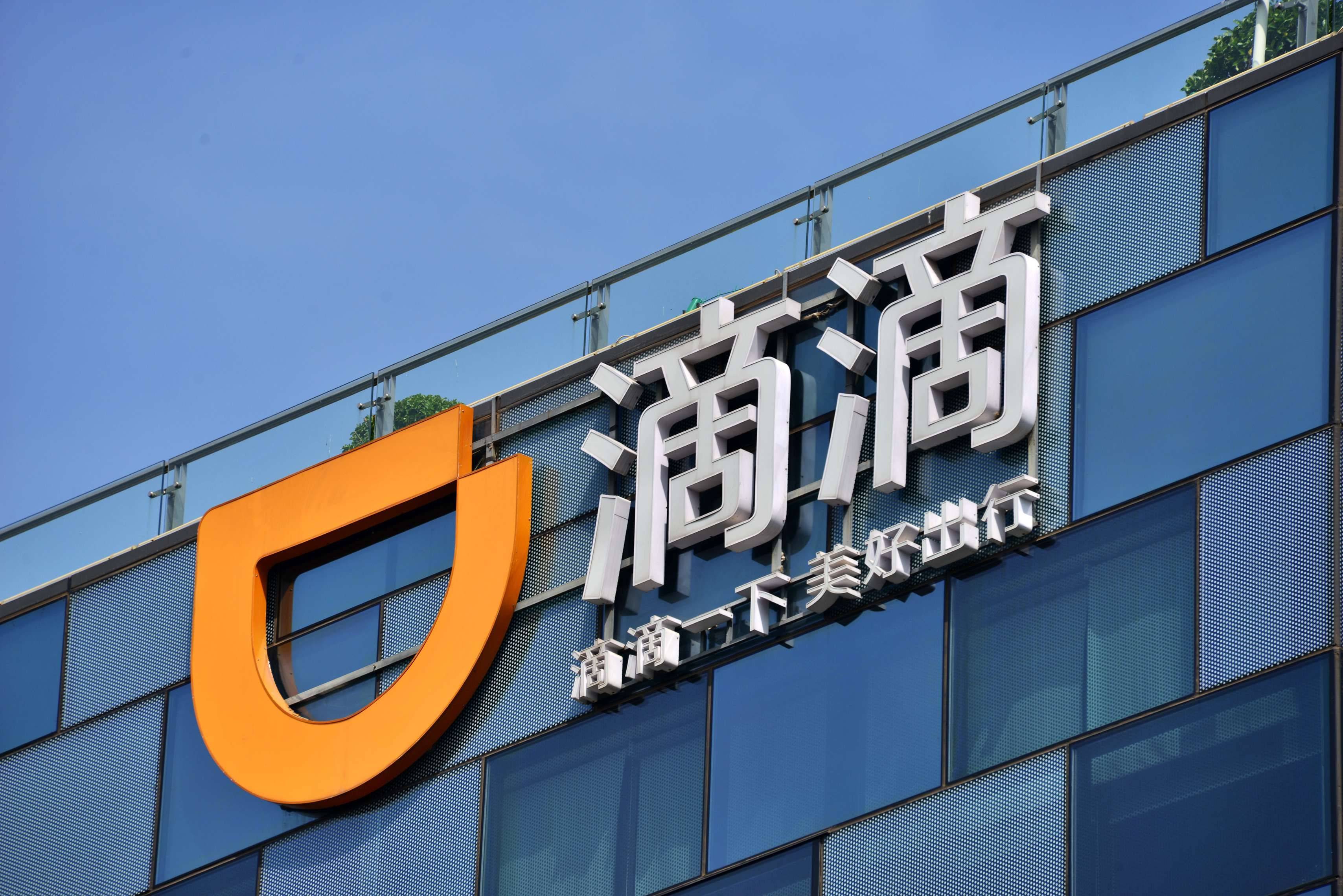
Not long ago, Didi released its financial report for the first quarter of 2024. The report showed that Didi's revenue in the first quarter of 2024 was 49.072 billion yuan, representing a 14.9% increase compared to the same period last year, indicating an overall positive fundamental picture.
However, there is often more valuable information behind the financial report.
Behind the seemingly stable financial report, the fundamental challenges that Didi has faced in the past, such as increasing net losses, fluctuating R&D and marketing investments, instability caused by senior management turmoil, escalating conflicts between drivers and the platform, and the embarrassing position of being the industry leader in terms of driver and vehicle compliance rates, seem to have undergone no significant changes after being taken off the shelves for rectification and re-listed.
The ideal is full, but the reality seems less than desirable.
Continuous Decline in R&D Investment
The first-quarter financial report of 2024 showed that Didi's R&D expenditure was 1.9 billion yuan, down 15.2% year-on-year from 2.2 billion yuan in the same period last year. In fact, as early as the first three quarters of 2023, Didi's R&D investment showed a continuous downward trend. In 2023, Didi's annual R&D expenditure was 8.9 billion yuan, accounting for 4.6% of total revenue, while in 2022, Didi's annual R&D expenditure could still be maintained at around 9.5 billion yuan, accounting for 6.8% of total revenue.
Specifically, the R&D investment in the first quarter of 2023 was 2.223 billion yuan, 2.153 billion yuan in the second quarter, and 2.109 billion yuan in the third quarter, showing a quarterly decrease.
What does the continuous decline in R&D investment mean for a technology internet company?
According to incomplete statistics, the Didi platform has experienced a technical failure almost every year from 2015 to 2023, with a total of 8 major incidents. These failures include but are not limited to pricing errors resulting in sky-high orders, system failures, data center network failures, version update issues, server technical failures, etc.
For example, on November 27, 2023, Didi experienced a "disaster-level" system paralysis incident in the internet travel industry. Many netizens reported on social media that the Didi Travel App was malfunctioning, unable to locate, and displaying network anomalies. Related topics such as "#Didi Crashed#" trended on platforms like Weibo, TikTok, Toutiao, and Baidu. According to rough calculations by the media, Didi lost at least over 10 million orders and nearly 400 million yuan in revenue this time. This fully exposes that as a social basic travel tool, Didi's platform still lacks a certain level of product and technical stability.
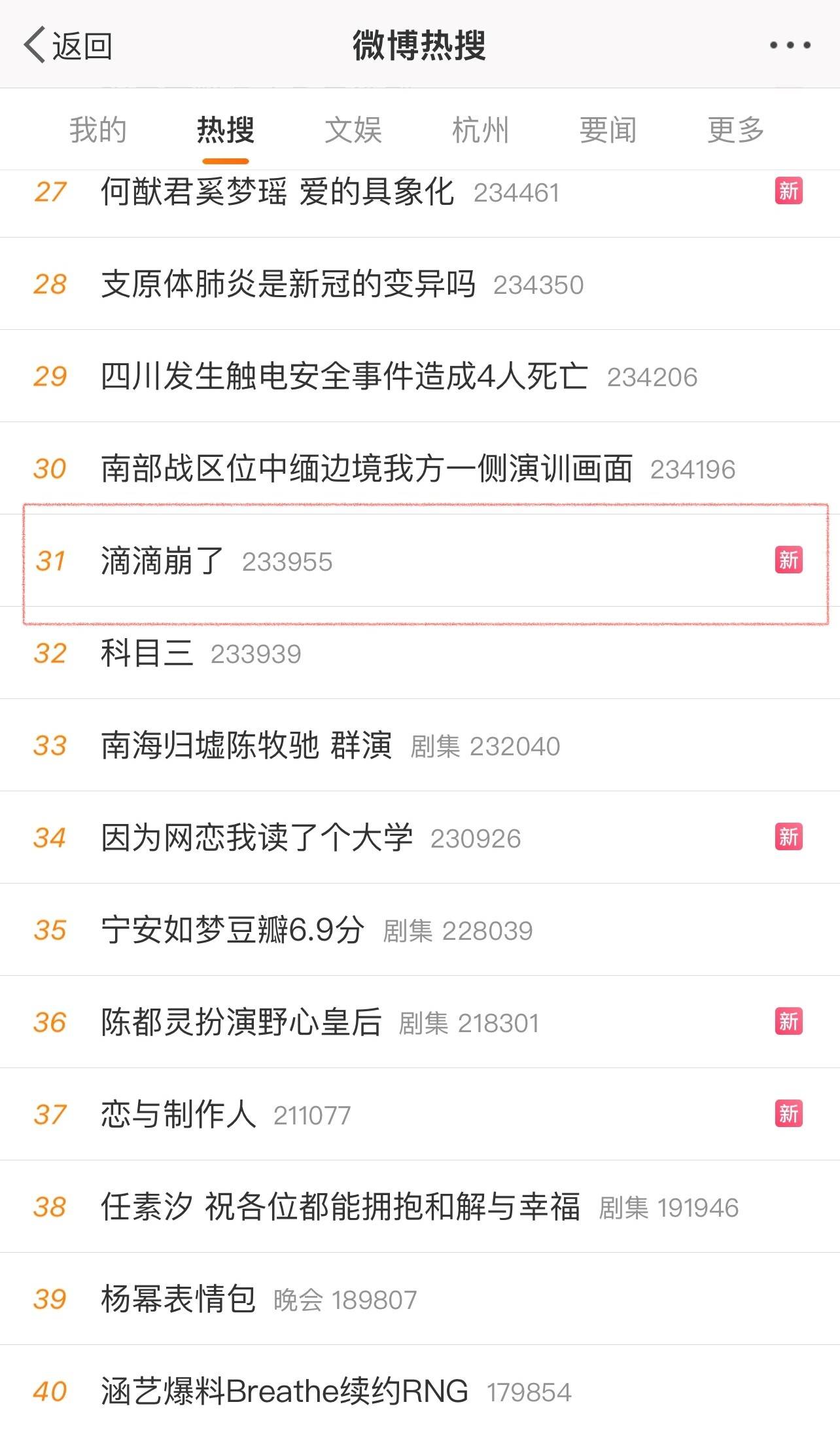
This high platform failure rate inevitably reminds people of Didi's declining R&D investment.
From a corporate perspective, Didi's reduction in R&D investment is to some extent an attempt to "save money." However, this travel giant has overlooked the most important point: technology is the foundation of a technology company and is positively correlated with corporate innovation exploration, business development, and market competitiveness, rather than blindly "cutting" R&D departments.
High Marketing Costs and Losses
Contrary to shrinking R&D costs, Didi's marketing and other costs have continued to increase. In the first quarter of 2024, Didi's operating and support expenses and sales and marketing expenses grew at rates of 16.3% and 15.7%, respectively, both higher than the overall revenue growth rate, resulting in an 11.4% year-on-year increase in overall income costs, which was lower than the GTV and revenue growth rates.
Of course, Didi's cost increase is expected. After all, in the entire online car-hailing industry, related operating difficulties continue to climb, competition is intensifying, and long-term shrinking technology investment will inevitably lead to a decline in user experience. Didi's anxiety is self-evident.
Over the past two years, competitors have continuously besieged Didi. As of April 30, 2024, a total of 349 online car-hailing platform companies nationwide have obtained online car-hailing platform operating licenses, and the smoke in this field has never stopped.
According to a report by LatePost, Didi, which has returned after rectification, has set itself a heavyweight growth target, aiming to grow by 10% - 15% annually in 2024 and 2025. Therefore, Didi can only continue to increase operating costs and marketing costs, hoping to stabilize its position once again.
However, it seems that this series of measures have not produced immediate results.
Didi's financial report showed that although Didi's domestic travel orders increased by about 1.1% quarter-on-quarter in the first quarter of 2024, according to the Ministry of Transport, the overall industry's orders increased by 1.9% quarter-on-quarter, which means that Didi did not outperform the entire travel market.
In addition, Didi also suffered a huge loss of 1.1 billion yuan in the first quarter. Compared with previous financial reports, the net loss for the same period last year was only 900 million yuan. Regarding the expansion of net losses, Didi mainly attributed it to 1.8 billion yuan in investment losses, while investments in the same period in 2023 were profitable, with a return of 55 million yuan. The main reason for the investment losses stems from changes in the share price of Xpeng Motors, a company held by Didi.
Although Xpeng Motors took the blame, a closer look at Didi's development over the past two years reveals that the fundamental challenges it has faced, such as high marketing costs and losses, seem to have undergone no significant changes after being taken off the shelves for rectification and re-listed.
In the current environment where the industry generally pursues cost reduction and efficiency enhancement, finding another way out has become an inevitable choice for Didi - to "cut" domestic drivers.
Squeezing Domestic Commissions to Subsidize Overseas Drivers?
The financial report showed that Didi's China travel business generated revenue of 44.5 billion yuan in the first quarter of 2024, representing a year-on-year increase of 14.1%. So, have Didi drivers' incomes increased?
In a Didi promotional video released a few days ago, the city's top driver in the video earned 14,600 yuan in monthly revenue. Some people questioned in the comments below, saying that even the top driver's revenue is only this amount, how much do others earn?
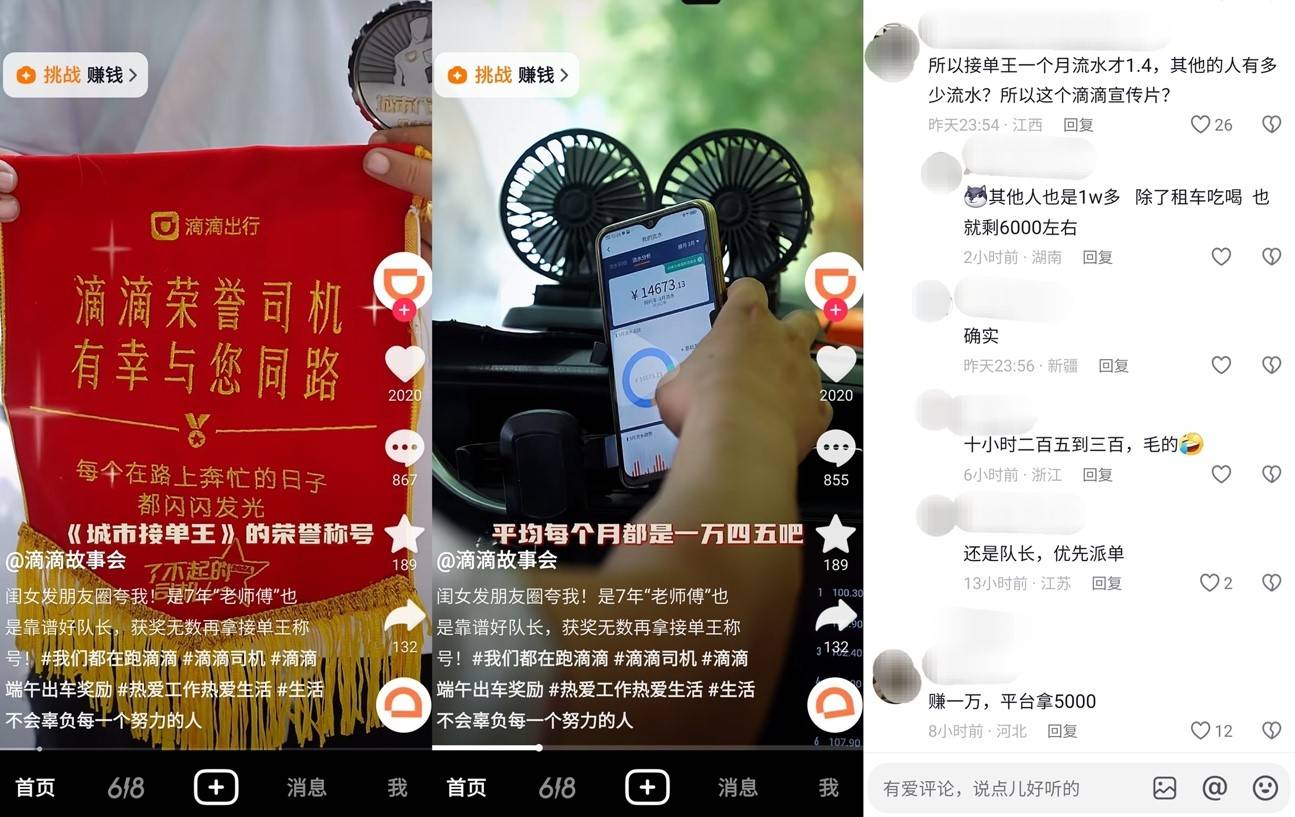
This may indicate that the encouraging revenue figures of Didi have not benefited drivers much, but instead, they seem to be getting more squeezed and may even have to endure the platform's "backstabbing".
The most obvious manifestation is that Didi's commission rate in China is higher than overseas, and it has been increasing year after year.
It is understood that the GTV (Gross Transaction Value) in Didi's financial report, after deducting the shares, rewards, etc., of drivers and intermediate partners, becomes Platform Sales. Therefore, the proportion of platform sales in the total transaction value can be regarded as Didi's commission rate.
In the first quarter of 2024, Didi's platform sales reached 15.1 billion yuan, representing a year-on-year increase of 33.9%. Among them, the platform sales in the Chinese travel market reached 12.9 billion yuan, representing a year-on-year increase of 34.8%. In the first quarter of 2024, the GTV in the Chinese market reached 71.4 billion yuan, representing a 21.1% increase from the first quarter of 2023.
Calculating according to the above formula, the average commission rate in China is 18%; while overseas, the average commission rate is only 11%.
More interestingly, for the same period in 2023, these two figures were 16.2% and 12.8%, respectively. Over the past year, Didi's commission rate in China seems to have increased, while overseas it has decreased instead. This has exacerbated the already severe employment situation for online car-hailing drivers in China.
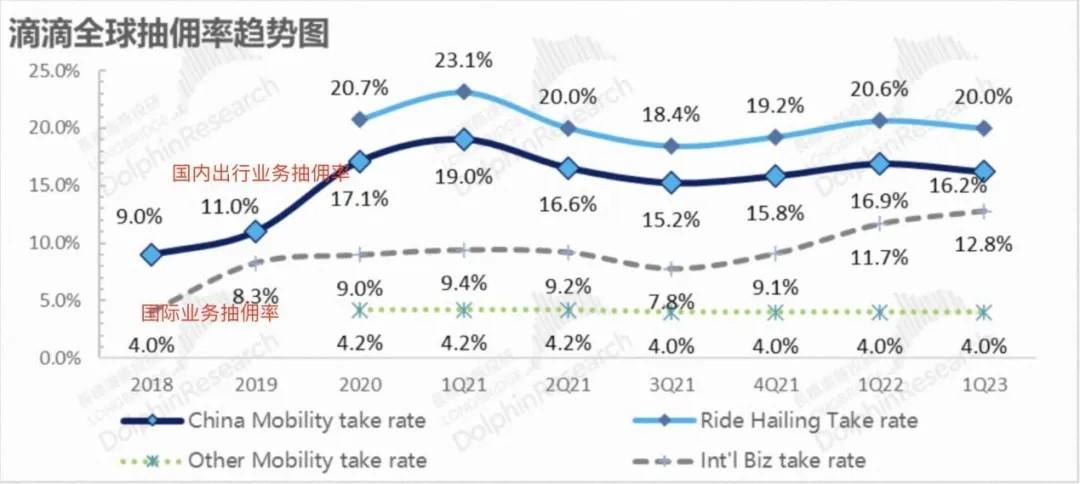
The conflict of interest between Didi and drivers has existed for a long time. The cruel reality of drivers being trapped in commissions has become more serious over the years. According to a report by Haibao News, a random survey of orders in cities like Jinan and Chengdu found that only 10% of Didi's orders had a commission rate below 20%, while preferential orders generally had a commission rate of 27%-29%.
Under such circumstances, the average income of Didi drivers has hit a new low, even declining by 10% at one point.
In the actual financial report, Didi's revenue reached 49.072 billion yuan in the first quarter of 2024, representing a year-on-year increase of 14.9%. Among them, the revenue from the China travel business was 44.538 billion yuan, accounting for the vast majority of total revenue, while the international business revenue was only 2.433 billion yuan.
More importantly, Didi is still burning money to grab overseas markets, leading to a significant increase in losses. Recall that when Didi first entered overseas markets, it relied on the strategy of "low commissions" for drivers and "low prices" for passengers to seize the market. Today, this measure continues, and the huge disparity in commission rates between domestic and overseas is evidence of this.
Ignoring the domestic driver community in the general environment and continuing to maintain a "two-faced" approach is probably the worst move Didi has made so far.
The platform and drivers should originally have a symbiotic and win-win relationship. As domestic online car-hailing drivers become more internally consumptive, the sustainability of this business model will be challenged.
The unequal treatment of drivers at home and abroad is one thing, but Didi's neglect of drivers as a part of its survival foundation is even more tragic.
Changing Leadership at a Crucial Moment, Didi Loses Its "Locomotive"
Before Didi released its first-quarter financial report, an announcement pushed the company's internal status to the public: Liu Qing no longer serves as the company's director and president, but was promoted to a permanent partner of Didi's partners, and Didi will no longer establish the position of president in the future.
How significant is Liu Qing to Didi?
Undeniably, for a long time, the industry has recognized Liu Qing as the most crucial figure in Didi, not Cheng Wei. Setting aside her family background, Liu Qing's role in Didi's strategy, financing, and international development over the years cannot be ignored.
Especially in terms of financing, data shows that from 2012 to 2018, Didi suffered cumulative losses of 39 billion yuan in six years. Another set of data shows that as of the end of 2019, Didi's cumulative losses exceeded 50 billion yuan. Correspondingly, Liu Qing helped Didi complete three significant financing rounds in 2014, 2015, and 2016, with amounts reaching 700 million US dollars, 2 billion US dollars, and 4.5 billion US dollars, respectively.
It can be said that Liu Qing's strong financing capabilities contributed significantly to Didi's ability to survive despite years of continuous losses.
In addition, Liu Qing also led several significant projects in Didi's development, such as the merger between Didi and Kuaidi, and the acquisition of Uber China. Liu Qing herself also holds a portion of Didi's shares and 22.8% of the voting rights. It can be said that Liu Qing led Didi through a difficult period and ultimately established Didi's foothold in the travel industry.
Now, Liu Qing stepping down from the presidency and taking on the role of a partner is indeed surprising. Although the announcement states that it is a promotion, it is clear at a glance which is more important to a company: a partner or a corporate president.
Compared to directors and presidents, partners are not positions that can influence a company's development direction in many enterprises, often resembling honorary positions. The announcement also stated that Liu Qing will focus on talent, organizational building, and social responsibility work in the future.
From the crucial financing work to so-called human resources management and social responsibility, the title Didi gave to Liu Qing effectively transformed her from a real powerholder to a role of an image ambassador. Calling it a promotion, from a certain perspective, seems more like a move to prevent another destructive impact on Didi from senior management changes, thus temporarily giving Liu Qing an insubstantial "high position."
Can Cheng Wei, who now wields absolute power, find a new solution and turn the tide at a crucial moment? This requires not only courage but also resources. The only thing that can be determined is that after Liu Qing's resignation as president, there are still many challenges left for Didi and Cheng Wei.
On the other hand, at the end of last year, there were rumors that Didi was restarting its Hong Kong listing. However, as of now, we have not seen Didi take any further action, and the timing of the listing remains uncertain. If listed in Hong Kong, its core issues of driver and vehicle compliance will be a significant obstacle for Didi to overcome.
On May 21, 2024, Didi Travel Technology Co., Ltd. was ordered by the Transportation Bureau of Acheng District, Harbin City, to rectify and fined 5,000 yuan for violating relevant provisions of the Interim Measures for the Administration of Online Car-Hailing Services.
In the first week of June 2024, according to a report by the Luohe Daily, the Henan Luohe City Transportation Integrated Administrative Law Enforcement Detachment conducted an investigation and imposed a fine of 30,000 yuan on Didi for illegally assigning orders to unlicensed vehicles and drivers. The Luohe transportation law enforcement department stated that in April 2024, there were 3,331 cases reported by the provincial department, with 2,056 cases of illegal order assignments, accounting for 40% of which were solely from Didi, seriously disrupting the normal order of the online car-hailing market.
According to the official data released by the Ministry of Transport, among the top 10 online car-hailing platforms in terms of order volume in April 2024, QiQi Travel had the highest compliance rate, while Didi Travel ranked ninth and Huaxiaozhu ranked tenth, even lower than CaoCao Travel, occupying an awkward position among the mainstream online car-hailing platforms in the industry.
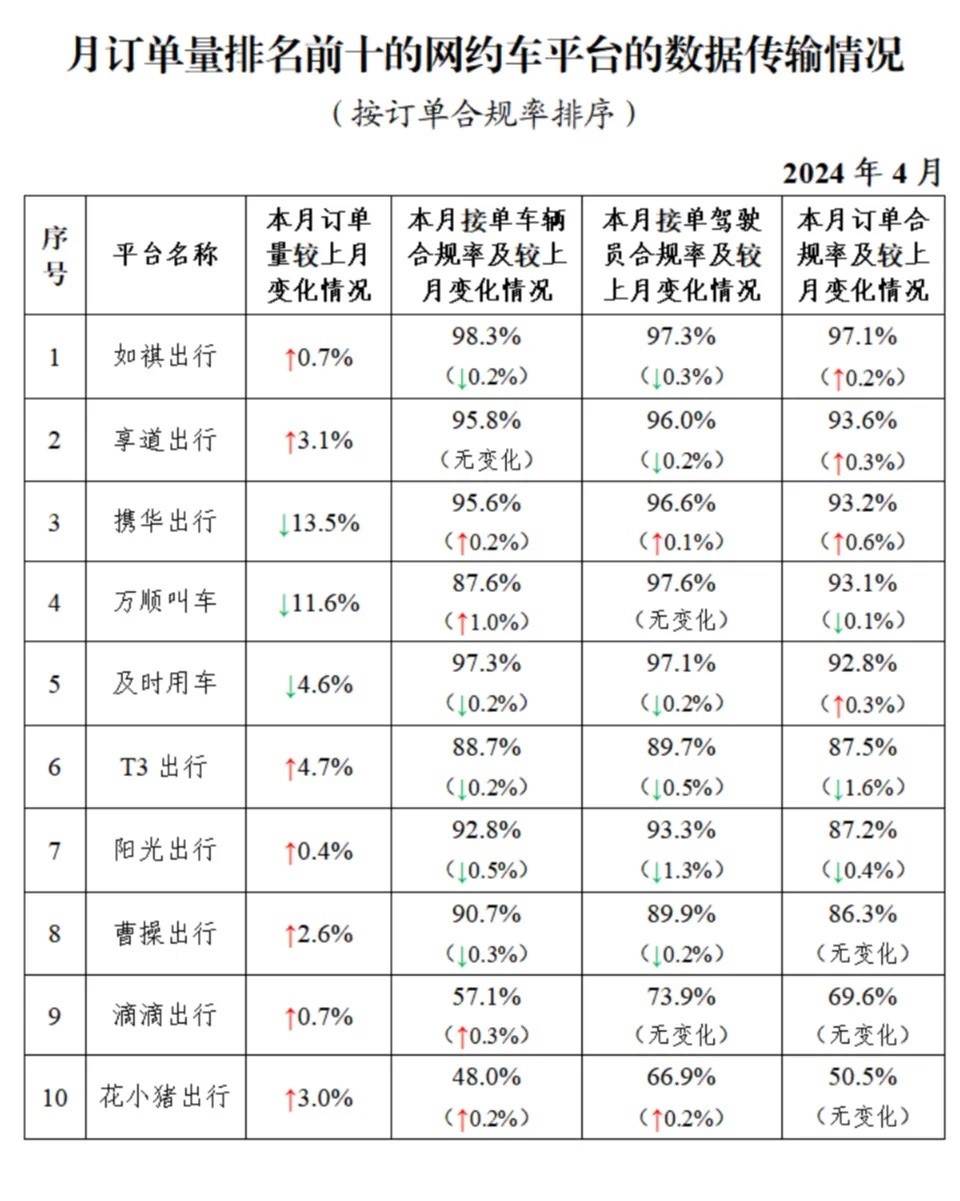
Liu Qing has always been the locomotive driving Didi forward, providing momentum for the company. However, as the country's financing rules for enterprises become increasingly stringent, and after experiencing multiple storms, Didi no longer needs or can hardly rely on financing to enhance its survival capabilities.
It can be reasonably speculated that Liu Qing's importance in Didi has been diminished due to the above reasons. But if Liu Qing couldn't push forward the listing process, it is estimated that Cheng Wei will also find it difficult to do so. Didi's decision to replace Liu Qing at this time has a tragic air, but undoubtedly, the difficulty of Didi's listing in Hong Kong will also increase significantly.
Dao Zong You Li, formerly known as Wai Dao Dao, is a new media outlet covering the internet and technology circles. The same-named WeChat public account: Dao Zong You Li (daotmt). This article is an original work, and any form of reprinting without retaining



